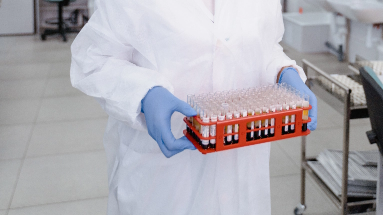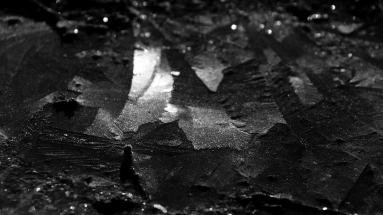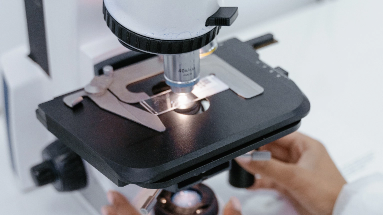*Individual "Professional Profiles" are currently unavailable but will be updated and available soon.
Welcome to the department of chemistry web page. Here you can find information about possible careers in chemistry and the chemistry classes offered by the department. You can also find information about the faculty and their research interests. The department has a goal of involving each chemistry major in undergraduate research.
If you want to major in chemistry or chemistry and physics education you can find the requirements for these majors and a breakdown by semester of the classes that should be taken to obtain a bachelor degree. Go to the “Degrees and Programs” page. The requirements for a chemistry minor are listed under “Minor in Chemistry.”
For more information, please contact the Chemistry Advisor at (801)-863-5642 .

Merrill Halling
Associate Professor
Department Chair
Analytical Chemistry

The Chemistry Department is dedicated to providing a high quality chemistry education for the students at Utah Valley University. The department offers a wide variety of classes to support other departments and to provide excellent training leading to a Bachelor of Science in Chemistry or a Bachelor of Science in Chemistry/Physics Education. The chemistry faculty is committed to encouraging students to learn and to do research not only in their course work, but in their lifelong careers.
Chemistry is the study of matter. Chemists study the properties and reactions of matter.
A career in Chemistry offers the opportunity for a challenging and rewarding life. Chemistry is the central science. It bridges physics and materials science, the biological sciences and medicine, and earth and planetary sciences. Chemistry is a fundamental driver in the business and commerce sector of our society.
Chemists are in continual demand. Many students with degrees in chemistry choose to pursue an advanced degree in graduate school, or to attend medical, dental, pharmacology, or veterinary schools. Chemists, however, are vital to a wide spectrum of fields.
In industry, chemists work on projects such as new product development and testing for substances important in products ranging from common household goods to exotic pharmaceuticals. Chemists are also needed in the broad area of environmental chemistry. In addition to the areas of industrial hygiene and waste treatment, environmental chemists are required in toxicology where a knowledge of both chemistry and biological systems is important. Environmental chemists are required to measure toxins in the environment, conduct research into the reactions and biochemical reaction mechanisms of possible pollutants, and to help provide insights into the development of new compounds which are less toxic to humankind and the environment.
In government, laboratory chemists are involved in measurements for standardization, development of new analytical techniques, merging computers and chemistry in new technology, forensics and even in robotics.
You may ask, “What about other professional programs?” Chemistry majors have successfully pursued law degrees and MBAs. These lawyers and business people are sought after because of their technical background and ability to understand complex issues involving science and technology. Students may pursue careers in sales, regulation of industry, or science policy.
An area which is always important and of increasing popularity is Chemistry Education. There are many majors now teaching Chemistry and other secondary school science classes. Another area for those who enjoy writing is Science Journalism. There is a great need for science expertise in the news media.
Most chemists, however, pursue laboratory research. We believe that the development of quality research scientists must begin at the undergraduate level with a positive research environment. These research opportunities at the early stages of development allow the aspiring scientist to obtain the proper perspective on the successes and failures associated with scientific research. As important is the opportunity for students to explore different areas of research and to discover the excitement inherent in research activities.
The Department of Chemistry is in the process of developing undergraduate research opportunities. This research is quite different from the laboratory exercises that are part of our lower level courses. As our faculty begin to develop their research interests, our students will be given the opportunity to participate. Students can participate in any or all of these projects as their interest and schedules permit.
We encourage you to look into the chemistry program at UVU. We will not kid you. The coursework needed to earn a degree is rigorous and challenging. However, that degree can open up your future to many possibilities. As an incentive to recruit students to our major, the College has set aside money for scholarships for chemistry majors.










Steve Chamberland
Professor
Message Steve ChamberlandEmail: [email protected]
Phone: 801-863-6017
Office: PS 229
Website: http://www.chamberlandresearch.com/
Specialties:
Natural Product Total Synthesis
Organic Method Development


Merrill Halling
Associate Professor
Message Merrill HallingSpecialties:
Solid-State NMR Spectroscopy
Computational Chemistry
Natural Products
Structure Elucidation

Young Ham
Associate Professor
Message Young HamSpecialties:
Organic Chemistry
Bioorganic Chemistry




Matt Horn
Associate Professor
Message Matt HornSpecialties:
Active Learning Pedagogies
Chemobrionics

Clinton King
Teaching Lab Manager
Message Clingon KingSpecialties:
Computational Chemistry








Ryan Toomey
Teaching Lab Manager
Message Ryan ToomeySpecialties:
NMR Spectroscopy
Computational Chemistry
Structure Refinement / Elucidation
Natural Product Characterization

Lakshmi Viswanath
Associate Professor
Message Lakshmi ViswanathSpecialties:
Organic Synthesis
Supramolecular Chemistry
Photovoltaics
Spectroscopy

Mark Wathen
Associate Professor
Message Mark WathenSpecialties:
Science Education

Bruce Wilson
Associate Professor
Message Bruce WilsonSpecialties:
History of Alchemy and Chemistry
Bioinorganic Chemistry
Molecular Structure
Bonding Theory
